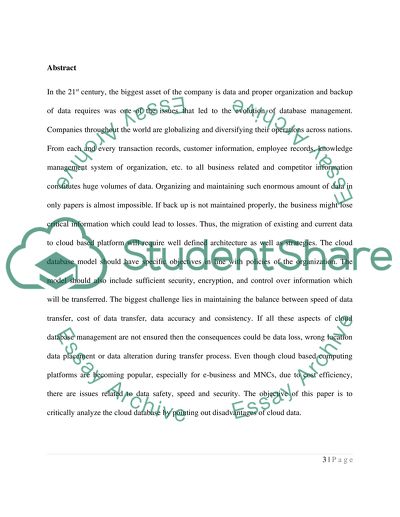Cite this document
(“Database management systems Research Paper Example | Topics and Well Written Essays - 2500 words”, n.d.)
Database management systems Research Paper Example | Topics and Well Written Essays - 2500 words. Retrieved from https://studentshare.org/information-technology/1481039-database-management-systems
Database management systems Research Paper Example | Topics and Well Written Essays - 2500 words. Retrieved from https://studentshare.org/information-technology/1481039-database-management-systems
(Database Management Systems Research Paper Example | Topics and Well Written Essays - 2500 Words)
Database Management Systems Research Paper Example | Topics and Well Written Essays - 2500 Words. https://studentshare.org/information-technology/1481039-database-management-systems.
Database Management Systems Research Paper Example | Topics and Well Written Essays - 2500 Words. https://studentshare.org/information-technology/1481039-database-management-systems.
“Database Management Systems Research Paper Example | Topics and Well Written Essays - 2500 Words”, n.d. https://studentshare.org/information-technology/1481039-database-management-systems.


